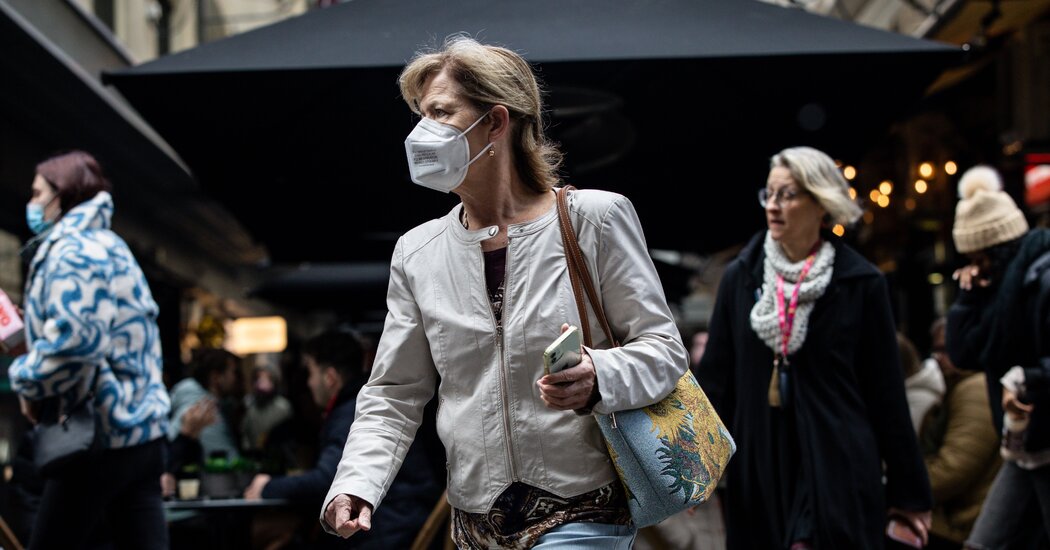With coronavirus cases surging, the authorities in Australia, which imposed some of the strictest Co rules in the world in the early stages of the pandemic, are so far refraining from bringing back restrictions.
Australia recorded 5,357 hospitalizations on Thursday, according to the federal health department, one of its highest figures since the pandemic began. Still, daily averages of new cases remain far below those seen during Australia’s biggest Co wave in January, when hospitalizations reached a peak.
Amid the new surge, health authorities and politicians are recommending that people wear masks indoors and are urging a return to working from home. Some government ministers have resumed wearing masks at news conferences. But the government hasn’t imposed new restrictions.
When Prime Minister Anthony Albanese was asked why tougher measures were not being imposed, he said that people were flouting the few existing rules — including a requirement to wear masks while on public transit, which has been in place since the start of the pandemic.
“Only about half the people are actually doing it,” Mr. Albanese told The Project news program on Wednesday. “Now, do you get on the trains and buses and arrest people or fine people for not doing it?”
He also cited the toll that renewed restrictions could take on Australians’ mental health, particularly that of young people.
“We’re seeing an increasing, really problematic increase, in incidents of severe consequences when it comes to young people’s health,” he said, without elaborating.
In Victoria State, where residents endured 262 total days of lockdown in 2020 and 2021, the state health minister rejected a recommendation from another health official that mask mandates be broadened to include students, teachers and retail and hospitality staff. The health minister, Mary-Anne Thomas, told local reporters that a mandate was not the most effective way of promoting mask use.
The education department and school bodies in the state wrote to parents this week to say that children should wear masks in class, but the education minister emphasized that it was not a requirement.
Earlier in the pandemic, Australia’s strict border policies left tens of thousands of its citizens stranded abroad, and people needed to be granted an exemption to leave the country. People were at times prevented from traveling between states and had to observe strict lockdown measures, like being allowed to leave home only to buy groceries, exercise outdoors for one hour a day or do authorized work.
Stephen Duckett, the former health director at the Grattan Institute, a research institute, said that the current reluctance to impose restrictions was the result of a shift in the politics surrounding pandemic restrictions.
This year, Australia took a sharp turn in its response and shifted to a policy of living with the coronavirus. The former prime minister, Scott Morrison, and his conservative government promised that with most of the population vaccinated, it would roll back restrictions and let people make their own health decisions. Eighty-six percent of Australia’s population has received two doses of a coronavirus vaccine, according to the Our World in Data project at the University of Oxford.
In May, Mr. Albanese took office, and his Labor party does not want to be seen as reneging on the previous government’s promise, Dr. Duckett said, with the reintroduction of even mild restrictions conflated by some Australians with a return to lockdowns.



